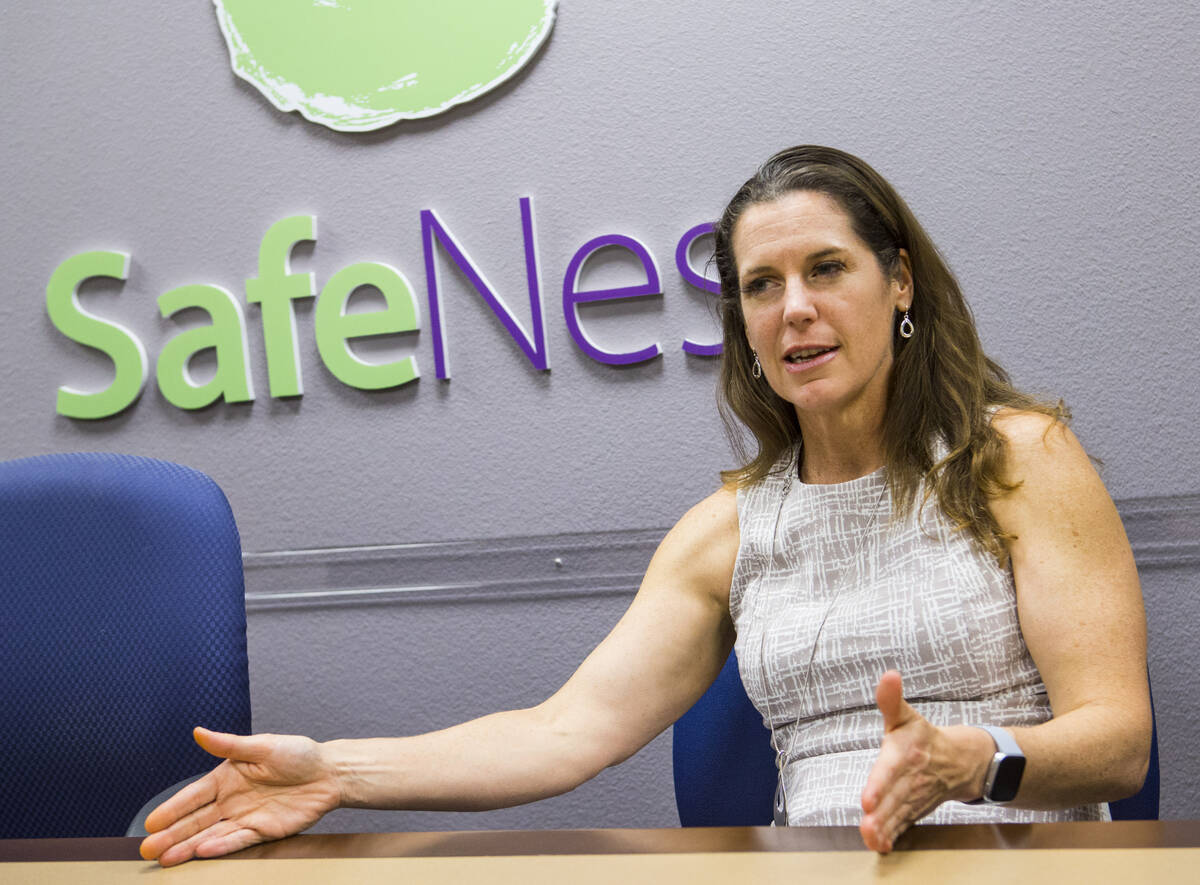Domestic violence victims share opinions on justice in UNLV, SafeNest study
Nearly 90 percent of domestic abuse victims surveyed in Las Vegas said that they would find justice through a trusted court system, according to a recent study.
Between November 2021 and April, SafeNest, a nonprofit group for survivors of domestic and sexual violence, and UNLV researchers asked 96 different survivors what justice meant to them.
They were asked to respond to 34 different statements among seven categories: “participation/voice/power; validation/vindication; apology/support; respect/fairness/dignity; prevention; accountability; and outcome.”
The largest portion of those surveyed, 89 percent, said they would find justice after the abuse stopped. And 88 percent of them said that one of the most important aspects of achieving justice was that “they are believed by the criminal system.”
“Survivors’ responses to the questions assessing their perceptions of justice suggest that the term justice is multi-faceted,” a report on the survey stated.
Other top responses involved being respected by friends, family and the criminal justice system.
“Justice for myself would feel complete and safe,” one survivor wrote anonymously in the survey. “It would be final. My abuser would not be able to go back to the home we shared nor would he be able to get his charges reduced by completing a program for abusers. Justice would focus more on the survivors of domestic violence and allow them to have a say in what happens to the abuser in criminal court.”
The study did not ask how many survivors pursued legal action against their abusers by seeking prosecution or speaking during a hearing. SafeNest CEO Liz Ortenburger said that in conversations she has had with the Clark County district attorney’s office, 95 percent of survivors recant their statements or do not show up to court.
“We’ve got to turn the dynamic to stop making victims go through a dozen hoops while he has to do some classes,” Ortenburger said. “How do we help that abuser stop abusing?”
Las Vegas Justice of the Peace Melissa De La Garza told the Las Vegas Review-Journal she found the study disheartening. De La Garza exclusively hears domestic violence cases and previously worked as a public defender and a prosecutor.
“I would just wonder what the circumstances were that they believed they were not believed,” she said. “Did their case actually go in front of a judge, or who is it they’re thinking doesn’t believe them?”
De La Garza said victim advocates from SafeNest sit in her courtroom each day to assist survivors and explain the process to them.
“The system has tried to put things in place for victims to make the process as easy as possible even though it’s not an easy process,” she said. “There are a lot of people in the system that have been on both sides, and they want to give each side the respect and attention they deserve.”
Ortenburger said she was not surprised how many survivors want to be heard and respected by the criminal justice system, which she called “atrocious” to survivors.
Nearly 97 percent of the people surveyed were women, 80 percent were heterosexual and 60 percent had children younger than 18. Eighty percent experienced physical abuse, while 73 percent also suffered verbal abuse. Others suffered emotional, financial, sexual and cyber abuse.
The lead researcher, Gillian Pinchevsky, said she was surprised at how many people were seeking restorative justice versus court outcomes. She defined restorative justice as outcomes that help heal a person after they are a victim of a crime.
“What happened to them matters beyond what happens to the person who caused them harm,” she said. “They want the abuse to stop, they want to be believed, want to be respected. They want to be treated fairly.”
Pinchevsky was a UNLV associate professor when she began the research, drafting the idea in 2019 after hearing a speech from Leigh Goodmark, a University of Maryland law professor who has written several books critical of the criminal justice system in handling partner violence. The survey also was conducted with researchers from the University of Delaware.
“I think people define justice as criminal punishment because that’s the only thing we offer them,” Goodmark said in an interview earlier this month. “People wanted people arrested, they wanted them to received punishment. I don’t personally read that as an endorsement of the legal system.”
Contact Sabrina Schnur at sschnur@reviewjournal.com or 702-383-0278. Follow @sabrina_schnur on Twitter.

















